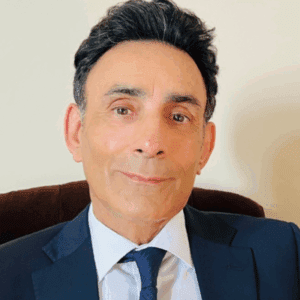

Substance use rates in Kentucky have trended upward for the past decade, yet many residents still face long waitlists or must drive hours to find help. Louisville Addiction Center closes that gap by delivering evidence-based, outpatient drug and alcohol rehab in Louisville, KY, that fits real-life schedules.
Instead of uprooting work or family life for weeks on end, clients can receive the same gold-standard therapies—cognitive-behavioral counseling, Medication-Assisted Treatment (MAT), and trauma-informed care—while sleeping in their own beds at night.
The result is a clinically robust, flexible option backed by a multidisciplinary team and proven outcomes.
When someone has an addiction, they are found to have a dependence on one or more substances to the point where they are unable to cease use without experiencing withdrawal symptoms. The nature of addiction often leads to increasingly severe physical and mental health side effects, along with heightened levels of tolerance. Consequently, a person struggling with addiction may find it difficult to quit due to the seemingly endless cycle of drug abuse. This cycle often continues as a result of the increased dependency one has on one or more substances.
Unfortunately, residents of Louisville, KY, are no strangers to the hardships of addiction. Kentucky, as with many other states in the south, has seen a dramatic increase in both the amount of drug use among its residents as well as drug-related overdose deaths. The following numbers collected by the National Institute of Drug Abuse (NIDA) shed light on the impact of drug addiction in Kentucky:

The impact of drug addiction on families can be profound. It often leads to a cycle of mistrust, emotional distress, and instability. Addicted individuals may prioritize substance use over their loved ones, causing emotional neglect and financial strain. Communication breaks down, leading to conflicts and a lack of support within the family unit. The effects of substance abuse on families with children are particularly troubling. If you are wondering “How does drug addiction affect relationships?”, here are some effects of substance abuse on a person’s life:
Though the symptoms one may experience may vary depending on the severity of the addiction, some commonly reported impacts of drug abuse may include the following:
Some additional signs and symptoms of drug addiction include:

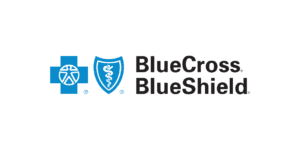
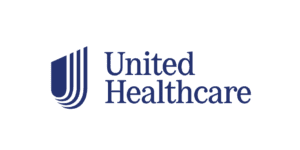

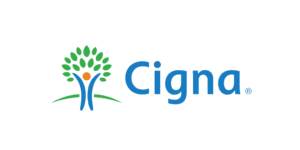
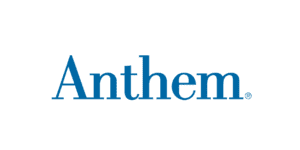
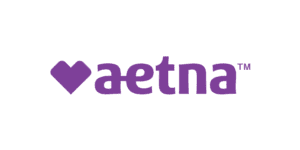
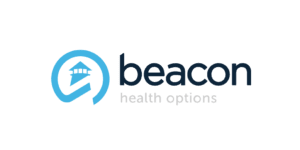
At Louisville Addiction Center, we know how difficult it can be to overcome drug addiction or even polysubstance abuse. That is why we offer a specialized drug rehab in Louisville. From the moment we hear from someone, one of our staff members will reach out to guide and assist with finding the right programs for each person. The following are some of the programs that we offer to clients who are embarking on their journey to recovery with us:
After reaching out to Louisville Addiction Center through our admissions page, one of our compassionate and dedicated is on it. From there, a staff member will discuss specific recovery-related needs and goals and develop an individualized treatment plan. These treatment plans are composed of our people-focused and medically supervised programs designed to ease the process of recovery. These programs are discussed in further detail below.

A detox treatment is often the first step that a client will take in their recovery journey after receiving an initial assessment. The purpose of a detoxification procedure is to completely rid the body of all traces of harmful substances, such as alcohol or drugs, in a safe and medically supervised environment. Hence, a medical detox is an essential part of the treatment process, as overcoming withdrawal symptoms is often one of the most difficult parts of recovering from addiction. At our drug rehab in Louisville, once detox is completed, a client is then able to undergo therapy and other supportive programs with a new and healthy perspective.

As Louisville’s most intensive outpatient option, PHP meets five to six hours a day, five days a week, combining individual counseling, group sessions, MAT support, and healthy-living guidance.
The schedule is ideal for people who need daily clinical oversight but can safely live at home. Treatment intensity is reviewed every two weeks; when goals are met, clients step down to IOP for added flexibility.
Ideal participants have completed medical detox or inpatient stabilization and still need daily clinical oversight for cravings, new medications, or co-occurring mental-health symptoms.
Most remain in PHP for 20–30 treatment days before the care team re-evaluates progress and, if appropriate, recommends a transition to IOP.

For clients who are suffering from a severe addiction and are in need of a living environment that completely removes their ability to consume harmful substances, residential treatment may be the right fit. In this form of treatment, a client lives full-time at our facility while receiving the care they need daily. This is done to remove any form of temptation to start using again in between treatment sessions.

At Louisville Addiction Center, we believe that the care and support one receives after undergoing treatment for addiction is essential to maintaining a sober, drug-free lifestyle. That is why we offer post-treatment aftercare services to all of our clients, designed to prevent potential relapses and provide the tools necessary to meet one’s sobriety goals.
Lasting change happens when proven medical science meets whole-person wellness. Louisville Addiction Center combines gold-standard clinical interventions with mind-body supports, creating a toolbox that tackles the biological, psychological, and social roots of substance use.
This integrated “how” behind our outcomes gives clients practical skills and measurable relief, not temporary fixes.

At our drug rehab, we believe that mindfulness and self-reflection are key to maintaining a healthy and sober lifestyle. Our holistic treatment options, such as art therapy and yoga, allow clients to discover positive and healthy ways to cope with their mental health challenges and addictive habits.

Louisville Addiction Center uses Medication-Assisted Treatment for eligible opioid- and alcohol-use disorders. Board-certified physicians can prescribe FDA-approved medications such as buprenorphine or naltrexone to curb cravings and support early stability.
MAT is always combined with individual and group counseling, so medication works hand-in-hand with evidence-based therapy throughout PHP, IOP, and OP levels of care.

Community keeps recovery on solid ground. Louisville Addiction Center offers a structured 12-Step program alongside life-skills training that helps clients manage day-to-day responsibilities after treatment.
Peer support sessions introduce practical tools and shared accountability so participants can practice healthier communication and build confidence before returning to work or school.

Substance use often masks untreated trauma or mood disorders; addressing both is essential for dual diagnosis Louisville, KY cases.
Therapists employ Cognitive Behavioral Therapy to reframe disruptive thought loops, Dialectical Behavior Therapy to strengthen emotion regulation, and Eye Movement Desensitization and Reprocessing for traumatic memory processing.
Sessions are paced to each client’s tolerance and integrated with mindfulness exercises that reduce physiological arousal.
By resolving underlying PTSD, anxiety, or depression alongside addiction, the program lowers relapse risk and supports holistic healing of mind and body.

When one person is struggling with drug addiction, the effects of substance abuse on families are profound. That is why, at Louisville Addiction Center, we offer family therapy to help both clients and their families recover from the impacts of addiction.
| Feature | Details |
|---|---|
| Evidence-Based Care | Treatment plans rely on FDA-approved medications, CBT, DBT, and relapse-prevention training—approaches endorsed by the National Institute on Drug Abuse and SAMHSA. |
| Licensed, Multidisciplinary Team | Board-certified physicians, psychiatric nurse practitioners, and master’s-level therapists collaborate on each care plan, ensuring medical safety and psychological depth. |
| Holistic Options | Yoga, mindfulness, and nutrition counseling complement clinical work, addressing stress, sleep, and overall well-being—key relapse triggers often missed in traditional programs. |
| 5-Star Google Rating | Dozens of public reviews highlight compassionate staff, clear communication, and life-changing outcomes—proof that quality care leaves a measurable imprint on the community. |
| Same-Day Assessments & Insurance Verification | A dedicated admissions line offers real-time benefit checks with major insurers or transparent private-pay quotes, so motivated callers can start PHP or IOP without delay. |
| Central Louisville Location | The East Market Street campus sits near bus routes, restaurants, and recovery meetings, making attendance feasible for clients who rely on public transit or have tight lunch breaks. |
For those looking to overcome drug addiction, safe and effective drug rehab is available. At Louisville Addiction Center, we believe that no one should have to deal with an addiction on their own. Therefore, our professional and caring staff members will support you throughout your recovery journey to improve your chances of recovery from drug addiction. Additionally, we serve veterans who need specialized care to help them recover.
Our people-focused approach to treatment ensures that all of your health-related needs are met so you can live a healthy, drug-free lifestyle. For more information about our specialized drug rehab in Louisville and the treatment options we offer, contact us today.
Look for changes that cluster together rather than one-off slip-ups: increasing tolerance (needing more of the substance to get the same effect), withdrawal symptoms when they try to cut back, neglected work or school responsibilities, recurring legal or financial trouble, and strained relationships with family or friends.
Physical cues—unexplained weight change, bloodshot eyes, or chronic fatigue—often appear alongside mood swings such as irritability, anxiety, or depression.
If two or more of these warning signs persist for more than a few weeks, it’s a strong indicator that a professional assessment is the safest next step.
Pick a calm moment—never the height of a crisis—to express concern using “I” statements (“I’ve noticed you’re missing classes,” “I’m worried about your health”). Come prepared with practical options, like Louisville Addiction Center’s admissions phone number and a brief explanation of its outpatient levels of care.
Offer to help with logistics: making the initial call, sitting in on the assessment, or arranging transportation.
Avoid ultimatums unless safety is at risk; instead, emphasize support and specific resources. Encouragement paired with concrete information often breaks through denial and makes starting treatment feel less overwhelming.
Louisville’s treatment landscape spans hospital-run detox units, long-term residential inpatient rehab facilities in Louisville, KY, and multiple outpatient programs.
Outpatient care is divided into three tiers: Partial Hospitalization (PHP) for full-day therapy, Intensive Outpatient (IOP) for multi-hour blocks, and standard Outpatient (OP) for once-weekly sessions.
Louisville Addiction Center operates across all three outpatient tiers, providing evidence-based care without overnight stays but coordinating with local hospitals when medical detox or psychiatric stabilization is required.
This continuum lets many Kentuckians receive top-tier services without leaving home, work, or school for weeks at a time.
It really depends on your pace and needs. Most people spend three to six weeks in PHP, coming in five days a week.
IOP is a bit lighter—three to five sessions a week for six to ten weeks, with morning or evening options.
OP is the most flexible; you might meet once a week for a few months and then taper down to monthly alumni check-ins. Louisville Addiction Center checks in on your progress every two weeks. If you’re moving ahead faster, we shorten the timeline; if you need extra support, we extend it.
You never pay for sessions you don’t need—and you never “graduate” before you’re truly ready.
Yes, most commercial carriers cover some portion of substance abuse treatment Louisville residents receive, including PHP, IOP, OP, and Medication-Assisted Treatment (MAT).
Upon initial contact, the admissions team submits a real-time eligibility check, breaks down deductible and copay estimates, and explains any prior-authorization requirements.
If your plan is out-of-network or you’re uninsured, staff will quote flat self-pay rates and discuss third-party financing partners.
Transparent cost discussions happen before the first appointment, so you can commit to treatment without surprises or hidden fees.
Absolutely. Louisville Addiction Center’s IOP offers morning blocks (9 a.m.–12 p.m.) and after-work blocks (5 p.m.–8 p.m.), each three hours long, three to five days a week.
This design lets clients clock in at their jobs, attend college classes, or manage caregiving duties while still receiving structured therapy, medication checks, and drug screens.
Case managers can supply work-release letters or assist with Family and Medical Leave Act (FMLA) paperwork if you need formal job protection during treatment.
Inpatient rehab provides 24/7 residential care, including room, board, and around-the-clock nursing—ideal for acute medical detox or severe psychiatric crises.
PHP delivers identical core treatments—group therapy, individual sessions, MAT consults, and holistic classes—but operates five to six daytime hours, Monday through Friday, allowing you to return home each night.
Because PHP doesn’t charge for lodging or meals, it typically costs less and helps clients practice recovery skills in real-world environments sooner.
Yes. Roughly half of clients entering addiction treatment centers in Louisville, KY, have a co-occurring mood or anxiety disorder.
Louisville Addiction Center staffs psychiatric nurse practitioners and master’s-level therapists trained in CBT, DBT, and EMDR. Integrated care means mental health assessments, medication management, and trauma-focused counseling run alongside substance-use therapy, giving equal weight to both conditions and lowering relapse risk.
During your medical intake, a board-certified physician reviews your substance history, withdrawal patterns, and overall health.
If you’re dealing with opioid or alcohol dependence, the provider may recommend FDA-approved medications such as buprenorphine, extended-release naltrexone, or acamprosate.
MAT is always paired with psychotherapy and regular lab work. Dosages are monitored weekly in PHP, bi-weekly in IOP, and monthly in OP to ensure safety and effectiveness.
Yes. Graduates transition into a free alumni network that hosts monthly peer-support meetings, quarterly social events, and on-demand telehealth check-ins. Alumni remain welcome at holiday gatherings and can re-enter higher levels of care quickly if new life stressors threaten sobriety.
This built-in safety net helps clients maintain momentum long after formal sessions end, reinforcing Louisville Addiction Center’s commitment to lifelong recovery support.
That depends on the program you’re in. In PHP, you’ll have a private therapy session and a medication check every week—plus daily group work. IOP scales back a bit: one-on-one therapy once a week and a quick med visit every seven to ten days.
In OP, meetings spread out to a weekly counseling slot and medical check-ins every couple of weeks (sometimes monthly once things are stable).
These regular touchpoints let us tweak meds right away, sharpen coping skills, and bump you up in care if anything starts to slip.
Louisville Addiction Center’s clinical menu includes Cognitive Behavioral Therapy (CBT) for thought-pattern restructuring, Dialectical Behavior Therapy (DBT) for emotion regulation, and Eye Movement Desensitization and Reprocessing (EMDR) for trauma processing. Medication-Assisted Treatment supports opioid or alcohol recovery, and therapists weave in Motivational Enhancement techniques to strengthen commitment.
Holistic options—yoga, guided meditation, and nutrition coaching—address sleep, stress, and overall wellness.
Life-skills workshops cover budgeting, résumé building, and relapse-prevention planning, rounding out a toolbox that targets both the biological and practical sides of sobriety.
Hear directly from those who have walked the path to recovery. Our patients’ stories highlight the compassionate care, effective programs, and life-changing support they’ve experienced. Let their journeys inspire you as you take your first steps toward healing.
Get Family Support Now
We understand addiction affects the whole family. Our comprehensive family program helps rebuild trust and restore relationships.
Weekly Family Therapy Sessions
Educational Workshops
Support Groups
Communication Skills Training
National Institute on Drug Abuse. (2025). Overdose death rates. National Institutes of Health. Retrieved August 22, 2025, from https://nida.nih.gov/research-topics/trends-statistics/overdose-death-rates
U.S. Department of Health & Human Services. (n.d.). Health Insurance Portability and Accountability Act of 1996 (HIPAA). Retrieved August 22, 2025, from https://www.hhs.gov/hipaa/index.html
Better Business Bureau. (2025). Louisville Addiction Center: BBB business profile. BBB. Retrieved August 22, 2025, from https://www.bbb.org/us/ky/louisville/profile/drug-addiction-treatment/louisville-addiction-center-0402-159167190/#sealclick
The Joint Commission. (n.d.). The Joint Commission. Retrieved August 22, 2025, from https://www.jointcommission.org/
Psychology Today. (n.d.). Louisville Addiction Center, Kentucky treatment center. Psychology Today. Retrieved August 22, 2025, from https://www.psychologytoday.com/us/treatment-rehab/louisville-addiction-center-kentucky-rehab-louisville-ky/1156600
LegitScript. (n.d.). Certification seal. LegitScript. Retrieved August 22, 2025, from https://static.legitscript.com/seals/18166693.js
substance Abuse and Mental Health Services Administration. (2023). Treatment locator. SAMHSA. Retrieved August 22, 2025, from https://findtreatment.gov
Centers for Disease Control and Prevention. (2023). Alcohol and public health. CDC. Retrieved August 22, 2025, from https://www.cdc.gov/alcohol/index.htm
National Alliance on Mental Illness. (2023). Co-occurring disorders. NAMI. Retrieved August 22, 2025, from https://www.nami.org/About-Mental-Illness/Common-with-Mental-Illness/Co-occurring-Disorders
Kentucky Cabinet for Health and Family Services. (2024). Behavioral health services in Kentucky. Commonwealth of Kentucky. Retrieved August 22, 2025, from https://chfs.ky.gov/agencies/dbhdid/Pages/default.aspx
World Health Organization. (2022). Alcohol and drug use disorders. WHO. Retrieved August 22, 2025, from https://www.who.int/news-room/fact-sheets/detail/alcohol


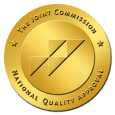
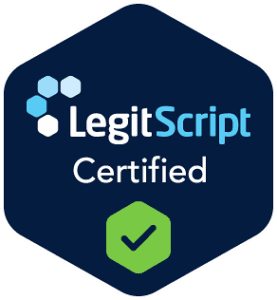
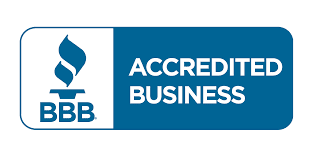



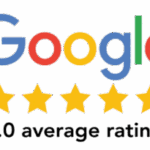


The information presented on Louisville Addiction Center website pages is intended solely for general educational and informational purposes related to addiction treatment, medical detoxification, rehabilitation services, and recovery support. This content is not intended to serve as medical advice, diagnosis, treatment planning, or a substitute for professional medical care. Substance use disorders are complex medical conditions that require individualized evaluation by qualified healthcare professionals.
Detoxification and rehabilitation needs vary widely based on the type of substance used, duration and frequency of use, physical health, mental health history, co-occurring disorders, and other individual factors. Information discussing detox timelines, withdrawal symptoms, medications, or treatment approaches is generalized and may not apply to every individual. Treatment decisions should always be made in consultation with licensed physicians, addiction specialists, or behavioral health providers.
If you or someone you love is experiencing a medical emergency — including but not limited to overdose, seizures, loss of consciousness, breathing difficulties, chest pain, suicidal thoughts, or violent behavior — call 911 immediately or go to the nearest emergency room. Louisville Addiction Center does not provide emergency medical services through this website, and no online content should delay urgent medical intervention.
Attempting to detox from alcohol, opioids, benzodiazepines, or other substances without medical supervision can be dangerous and potentially life-threatening. Withdrawal symptoms can be unpredictable and severe. Any detox-related information provided is for awareness only and should never replace professional medical oversight.
Information regarding insurance coverage, treatment costs, or payment options is provided for general guidance purposes only. Insurance benefits vary by carrier, policy, state regulations, and medical necessity determinations. Coverage information is not guaranteed and may change without notice. Louisville Addiction Center strongly encourages individuals to contact our admissions team directly to verify insurance benefits, eligibility, and coverage prior to making treatment decisions.
While reasonable efforts are made to ensure accuracy, Louisville Addiction Center makes no warranties regarding the completeness or timeliness of website content. Healthcare regulations, clinical standards, and insurance policies evolve regularly. Reliance on any information provided is at your own risk.
This website may include references or links to third-party resources for informational purposes. Such references do not constitute endorsements. Louisville Addiction Center is not responsible for external content, services, or policies.
Use of this website does not establish a provider-patient relationship. Contacting Louisville Addiction Center does not guarantee admission or treatment. Recovery outcomes vary and are never guaranteed.
The content available on Louisville Addiction Center pages is designed to provide educational information related to addiction, detoxification, rehabilitation, and recovery. This information should not be interpreted as professional medical advice or treatment recommendations.
Addiction treatment is highly individualized. Detox and rehab needs vary significantly based on health history, substance use patterns, and mental health considerations. Information provided is general and may not apply to all individuals.
If an emergency arises — such as overdose, severe withdrawal symptoms, or immediate danger — call 911 without delay. Online resources are not a substitute for emergency medical care.
Medical detox should always be conducted under professional supervision. Attempting detox without medical oversight can be dangerous.
Insurance information is provided as general guidance only. Coverage varies by plan and carrier. Louisville Addiction Center encourages all individuals to verify benefits directly with admissions staff.
Recovery outcomes are not guaranteed. Treatment effectiveness depends on many factors including engagement, clinical needs, and aftercare support.
References to external resources do not imply endorsement. Louisville Addiction Center is not responsible for third-party content.
Website use does not establish a provider-patient relationship.
National Institute on Drug Abuse. (2025). Overdose death rates. National Institutes of Health. Retrieved August 22, 2025, from https://nida.nih.gov/research-topics/trends-statistics/overdose-death-rates
U.S. Department of Health & Human Services. (n.d.). Health Insurance Portability and Accountability Act of 1996 (HIPAA). Retrieved August 22, 2025, from https://www.hhs.gov/hipaa/index.html
Better Business Bureau. (2025). Louisville Addiction Center: BBB business profile. BBB. Retrieved August 22, 2025, from https://www.bbb.org/us/ky/louisville/profile/drug-addiction-treatment/louisville-addiction-center-0402-159167190/#sealclick
The Joint Commission. (n.d.). The Joint Commission. Retrieved August 22, 2025, from https://www.jointcommission.org/
Psychology Today. (n.d.). Louisville Addiction Center, Kentucky treatment center. Psychology Today. Retrieved August 22, 2025, from https://www.psychologytoday.com/us/treatment-rehab/louisville-addiction-center-kentucky-rehab-louisville-ky/1156600
LegitScript. (n.d.). Certification seal. LegitScript. Retrieved August 22, 2025, from https://static.legitscript.com/seals/18166693.js
substance Abuse and Mental Health Services Administration. (2023). Treatment locator. SAMHSA. Retrieved August 22, 2025, from https://findtreatment.gov
Centers for Disease Control and Prevention. (2023). Alcohol and public health. CDC. Retrieved August 22, 2025, from https://www.cdc.gov/alcohol/index.htm
National Alliance on Mental Illness. (2023). Co-occurring disorders. NAMI. Retrieved August 22, 2025, from https://www.nami.org/About-Mental-Illness/Common-with-Mental-Illness/Co-occurring-Disorders
Kentucky Cabinet for Health and Family Services. (2024). Behavioral health services in Kentucky. Commonwealth of Kentucky. Retrieved August 22, 2025, from https://chfs.ky.gov/agencies/dbhdid/Pages/default.aspx
World Health Organization. (2022). Alcohol and drug use disorders. WHO. Retrieved August 22, 2025, from https://www.who.int/news-room/fact-sheets/detail/alcohol











Hear directly from those who have walked the path to recovery. Our patients’ stories highlight the compassionate care, effective programs, and life-changing support they’ve experienced. Let their journeys inspire you as you take your first steps toward healing.
Louisville Addiction Center is helping people in Kentucky overcome addiction and mental health challenges.

















